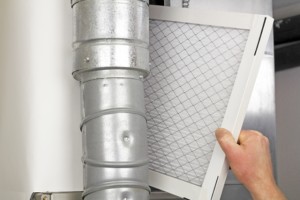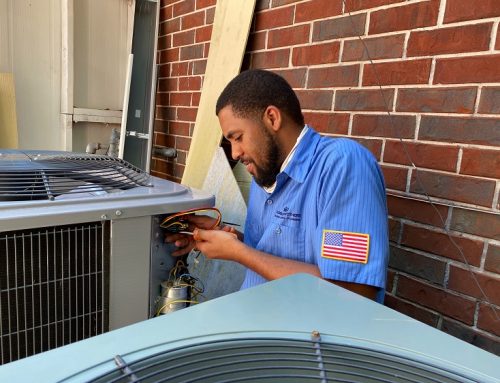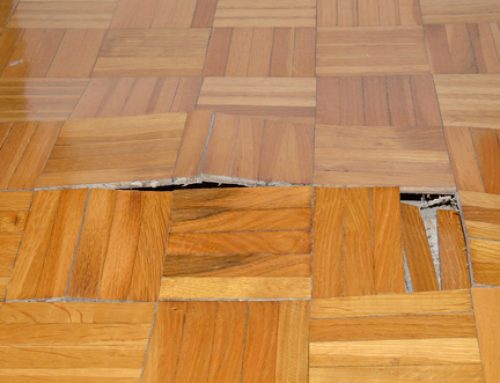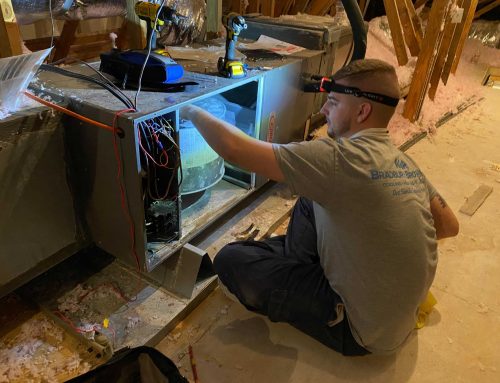If you’re like most homeowners, you understand the reason for changing your air filter is to protect your HVAC system from dirt particles that might clog it and cause system malfunctions. What you may not know is that air filters — or at least the right kind of air filter — can have another purpose. They can actually improve your indoor air quality. Read on and learn how.
There are a number of different kinds of air filters, and most are rated. The HVAC industry standard is the Minimum Efficiency Reporting Value, or MERV, scale, which goes from 1 to 20.
The inexpensive fiberglass filter you may be using is rated 1-4, and does little for your air quality. It is designed to capture the largest dust particles, while filters rated higher than 4 do a much better job of capturing smaller particles. These particles may include hair, dust mite debris, pet dander, pollen and other pollutants. Along with regular vacuuming, a good quality pleated filter can help capture these particles before they are sucked into your HVAC system. re-circulated into your home and eventually cause allergies and other respiratory problems.
What’s Best for Your Home?
The best air filter for the typical residence is usually within a range of MERV 8-13, depending on the number of occupants and pets in your home, and other activities that may generate dust and other particles.
You might also opt for an electronic filter. It uses a combination of an electric charge and a filtering medium to trap particles.
Electronic air filters are available as portable or whole-house models that are installed in your HVAC system. These are more expensive, but it may be worth the money for the extra protection they can provide for your home’s air quality.
For more information on air filters, contact the specialists at Bradbury Brothers Heating and Air Conditioning. We serve Conroe, The Woodlands, Oak Ridge North, Montgomery, Magnolia and Tomball.
Image via Shutterstock.com





